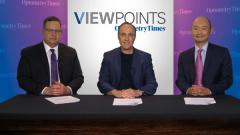
Miotic Selectivity in the Management of Presbyopia
Andrew S. Morgenstern discusses the selectivity of miotic agents in isolating the pupil while limiting adverse events for the management of presbyopia.
Episodes in this series

Barry Eiden, OD, FAAO, FSLS: Mr Morgenstern, can you address what Dr Mah was referring to before in terms of the selectivity of some of the agents that are being looked at, in terms of isolating the effect on the pupil without some of the other effects?
Andrew S. Morgenstern, OD, FAAO, FNAP: We have drugs in optometry and ophthalmology that do a great job. They work. They do good things for us, and they help us with so many diseases. We’re looking for the optimum zone. If we can get that pupil down to a certain size, that’s great. Not affecting the ciliary body and the ciliary muscle is helpful. We know it’s not with everybody, but it happens with the ciliary muscle and causes some aches in the eye. It could cause some headaches in people. That could be something. The drug is helping them see a little better, but if they’re getting some adverse effects from it, they may not want to use it as much. It’s an adverse effect. Drugs have adverse effects. This is nothing new. All drugs have some adverse effects. But as we look at new drug technologies, that pilocarpine was good. We think aceclidine is going to be a better product. It’s going to help us, we’re going to learn from what was in the past, and we’re going to modify it to get our patients to have better vision with fewer adverse effects. That’s the name of the game. It’s like that with every drug in every category in any part of the body. That’s not to say that it was bad. We’re just trying to get a better option for our patients.
Transcript Edited for Clarity
Newsletter
Want more insights like this? Subscribe to Optometry Times and get clinical pearls and practice tips delivered straight to your inbox.














































.png)


